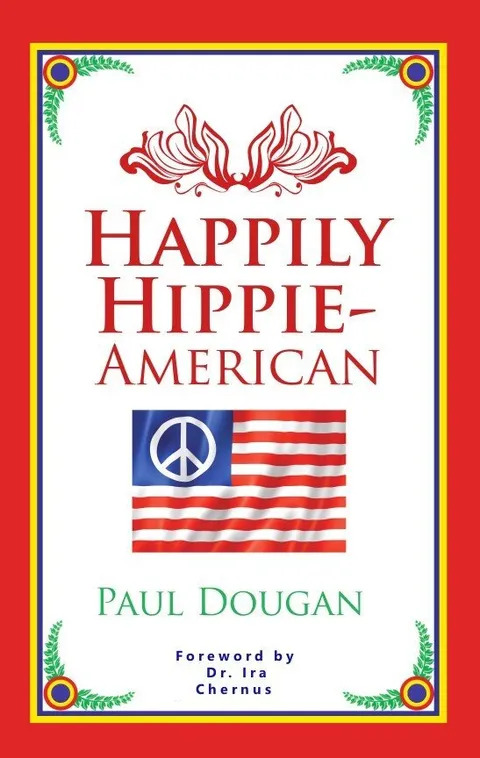
Bringing the free love diaspora out of the shadows and into the modern conversation, author Paul Dougan delivers a generation-spanning revelation with his latest book Happily Hippie-American.
Celebrating the achievements and legacies of hippies, Dougan’s book aims to remind readers that the message of peace and love is still thriving today, and much of the hippie ethos has never gone away. The hippie demographic is tightly linked to the end of the 1960s and 1970s, but the echoes of that belief system continue to define and guide millions of people around the world. More than a fashion trend or rebellious phase, the complexity and depth of the hippie ethos is expounded on by Dougan in these twelve chapters.
The book begins by examining the sociopolitical reasons why the hippie “ethnicity” has become so invisible and looked down upon, despite the tens of millions of people who still identify with that mindset. The following sections take on a more anthropological and sociological bent, detailing the role that hippies have played and continue to play in the national conversation about liberalism and progressivism. Dougan delves into the “othering” that can happen with hippies, just as it can happen to other ethnic minorities, but approaches this section with sensitivity, acknowledging the problematic aspects of hippie stereotypes and privilege vis a vis law enforcement.
The last third of the book contains some of the strongest writing, and the most original perspectives on hippiedom and its legacy. Probing into the psychological underpinnings and consequences of being a hippie, both then and now, Dougan does a fair bit of self-reflection and is brutally honest about the struggles of occasionally closeting oneself as a hippie. The chapter on drug laws is especially eye-opening, connecting the free-thinking liberalism of the 1970s and the War on Drugs. The final proposal from the author is a bold one – hippies uniting once more and stepping back into the cultural limelight, presenting an updated philosophy to a world in need, while staying authentic to the ethos of hippiedom.
From a technical perspective, the arguments and sections are structured well, balancing a conversational tone and personal anecdotes with a confident presentation of facts. The inclusion of accounts and quotes from legendary figures of past eras, as well as a variety of resources and references, adds credibility to the author’s argument, as does his obvious passion for the subject matter. Dissecting an entire group of people over the course of multiple decades and disciplines is an ambitious task, but Dougan does it gracefully, without any obvious omissions or conveniently cut corners, expertly unraveling various hippie prejudices that have persisted in mass media and the public consciousness, and pointing to the lasting impacts and victories of the flower generation’s ideology.
Continuing in the tradition of his previous books, for a kind of multi-volume manifesto on the merits of hippiedom, Dougan presents an entertaining, accessible, and informative book on par with an academic thesis, despite its obvious bias towards love, peace, and perennially good vibes.
Book Links
STAR RATING
Design
Content
Editing
Get an Editorial Review | Get Amazon Sales & Reviews | Get Edited | Get Beta Readers | Enter the SPR Book Awards | Other Marketing Services






















Leave A Comment